The sleep deprivation of the woke
Posted by Richard on UTC 2022-07-31 10:03
Friedrich Nietzsche (1844-1900), though often ill, often isolated, his professional work a battleground, nevertheless entertains his readers with witty humour, elegantly expressed.
Here is a short extract from the second section of his work Unzeitgemäße Betrachtungen / Unfashionable Observations (1874). [The 'Sperrschrift' used in the German text for emphasis is here rendered in bold]
On the usefulness and disadvantage of history for life
Vom Nutzen und Nachteil der Historie für das Leben
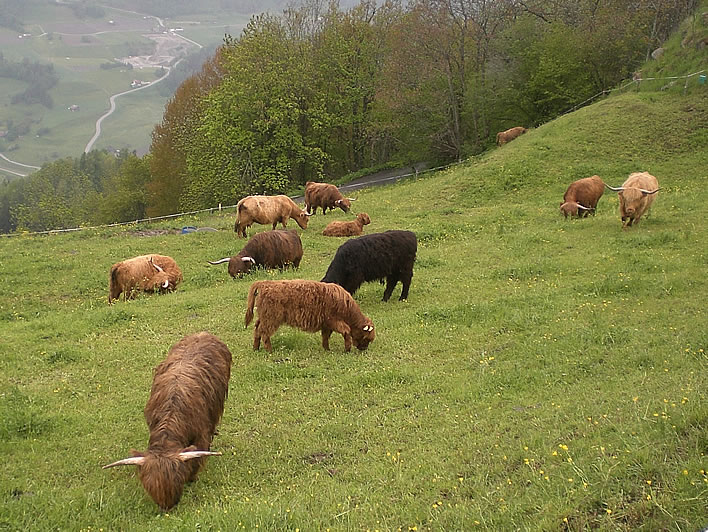
Consider the herd [1], grazing its way past you: it does not know what yesterday, what today is, jumps around, eats, rests, digests, jumps around again, and this from morning to night and from day to day, tethered tightly to the stake of the present moment by its desires and dislikes and is therefore neither melancholic nor torpid.
Betrachte die Heerde, die an dir vorüberweidet: sie weiss nicht was Gestern, was Heute ist, springt umher, frisst, ruht, verdaut, springt wieder, und so vom Morgen bis zur Nacht und von Tage zu Tage, kurz angebunden mit ihrer Lust und Unlust, nämlich an den Pflock des Augenblickes und deshalb weder schwermüthig noch überdrüssig.
- Nietzsche, the Protestant pastor's son, who despised religions as 'superstition', opens his homily with a delicate but definite echo of Matthew 6:23, the famous line from the Sermon on the Mount: Consider the lilies of the field, how they grow; they toil not, neither do they spin. Bible, Matthew 6:23. Luther's version (1545): Schaut die Lilien auf dem Felde, wie sie wachsen: sie arbeiten nicht, auch spinnen sie nicht.
The pulpit tone is quite consonant with Nietzsche's later Zarathustra persona, the preacher of the new wisdom to humankind.
Maintaining this theme, your translator has preferred the biblical term 'beast' (as in the 'beasts of the field', AV, 'Tiere auf dem Felde' Luther) to the limp-wristed generic word 'animal'. The human is an animal, too.
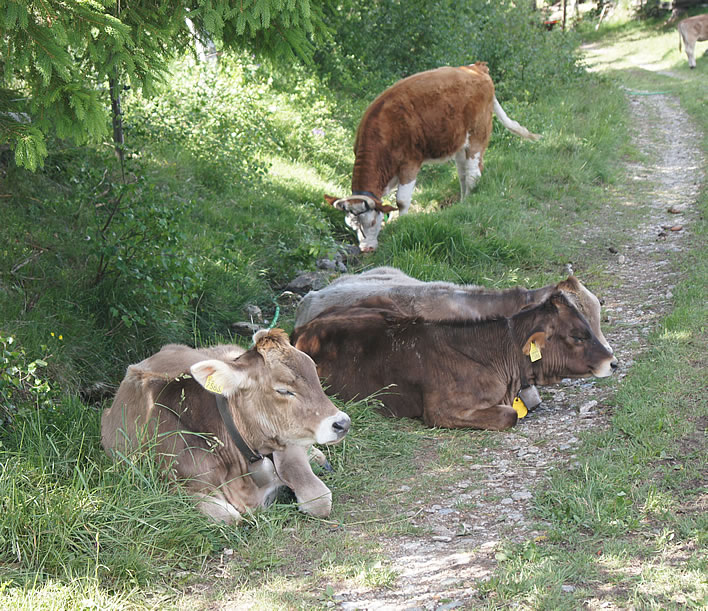
Observing this is hard for the human, because he boasts of his human nature to the beast and yet looks enviously at the beast's happiness – for he wants that for himself, to live as the beast does, neither weary nor living in anguish, and yet he desires this in vain, for he does not want to live like the beast does.
Dies zu sehen geht dem Menschen hart ein, weil er seines Menschenthums sich vor dem Thiere brüstet und doch nach seinem Glücke eifersüchtig hinblickt — denn das will er allein, gleich dem Thiere weder überdrüssig noch unter Schmerzen leben, und will es doch vergebens, weil er es nicht will wie das Thier.
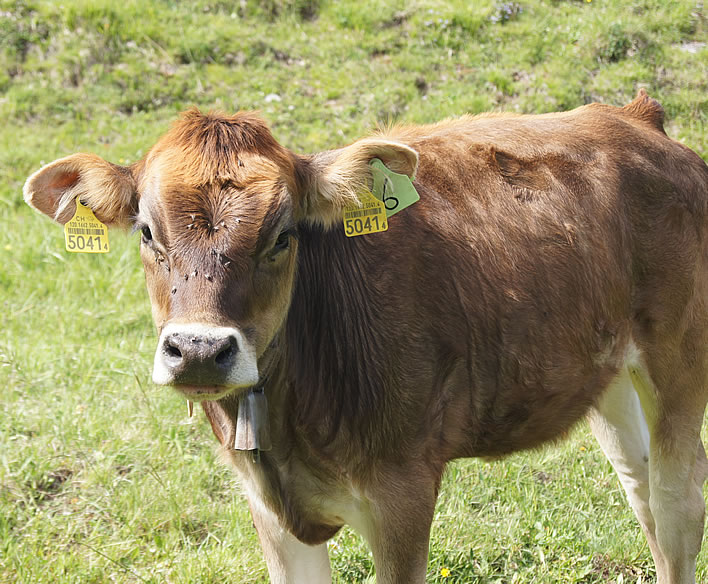
The human might ask the beast: why don't you tell me about your happiness instead of just looking at me? The beast wants to answer and say: 'That is because I always forget immediately what I wanted to say' – but then it had already forgotten this answer and so stayed silent: leaving the human puzzled at this.
Der Mensch fragt wohl einmal das Thier: warum redest du mir nicht von deinem Glücke und siehst mich nur an? Das Thier will auch antworten und sagen, das kommt daher dass ich immer gleich vergesse, was ich sagen wollte — da vergass es aber auch schon diese Antwort und schwieg: so dass der Mensch sich darob verwunderte.
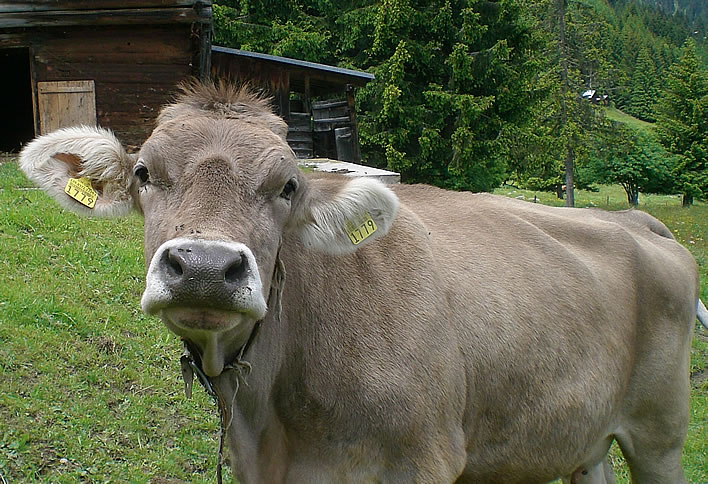
The human wonders about himself, that he is not able to learn to forget and thus hangs onto the past forever: however far or however quickly he runs, the chain runs with him. It is a wonder: the present instant – there in flash, gone in a flash; before it a void, after it a void – still comes back as a ghost to disturb the peace of a later moment.
Er wundert sich aber auch über sich selbst, das Vergessen nicht lernen zu können und immerfort am Vergangenen zu hängen: mag er noch so weit, noch so schnell laufen, die Kette läuft mit. Es ist ein Wunder: der Augenblick, im Husch da, im Husch vorüber, vorher ein Nichts, nachher ein Nichts, kommt doch noch als Gespenst wieder und stört die Ruhe eines späteren Augenblicks.
Unceasing from the scroll of time a sheet is released, falls away, flutters off – and suddenly flutters back again, to land in the human's lap. The human says 'I remember' and envies the beast, which forgets immediately and watches every instant die completely and sink down in fog and night to be extinguished for ever.
Fortwährend löst sich ein Blatt aus der Rolle der Zeit, fällt heraus, flattert fort — und flattert plötzlich wieder zurück, dem Menschen in den Schooss. Dann sagt der Mensch „ich erinnere mich“ und beneidet das Thier, welches sofort vergisst und jeden Augenblick wirklich sterben, in Nebel und Nacht zurücksinken und auf immer erlöschen sieht.
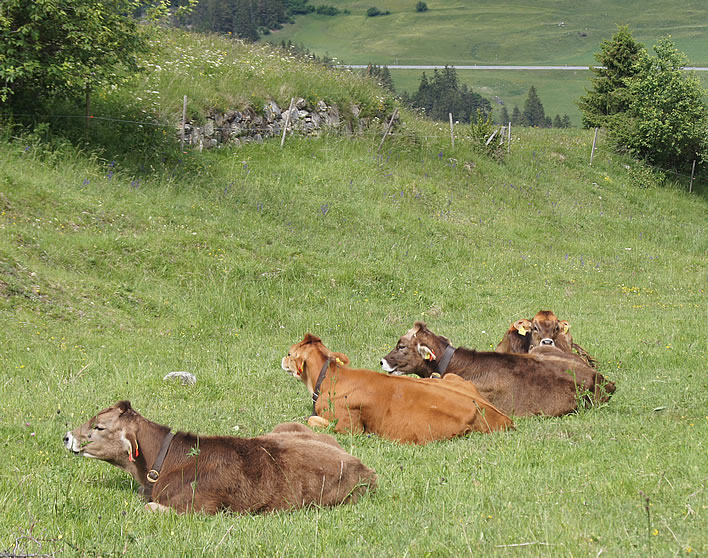
Thus the beast lives ahistorically [1]: it is a calculation [2] completely resolved in the present, as a number that leaves no awkward remainder behind; the beast does not know how to dissimulate, it conceals nothing and appears at every moment as completely that, which it is; it cannot therefore be anything other than honest.
So lebt das Thier unhistorisch: denn es geht auf in der Gegenwart, wie eine Zahl, ohne dass ein wunderlicher Bruch übrig bleibt, es weiss sich nicht zu verstellen, verbirgt nichts und erscheint in jedem Momente ganz und gar als das was es ist, kann also gar nicht anders sein als ehrlich.
- unhistorisch/'ahistorical(ly)' is a term which Nietzsche uses consistently in this text and so has been kept unchanged. A more easily accessible translation would be 'without history', that is, in a permanent present.
- Nietzsche's clever playfulness with German, so amusing to the native speaker, can prematurely age translators. In this particular case the verb 'aufgehen' is often used in the context of a usually simple calculation and can indicate both the process and the result of a calculation. Die Rechnung geht auf is a common cliche in German to describe a plan that has come to a successful conclusion. The calculation here is a division, from which we hope for a nice round number as its result (=completed present), rather than a vulgar fraction (=not completely resolved).
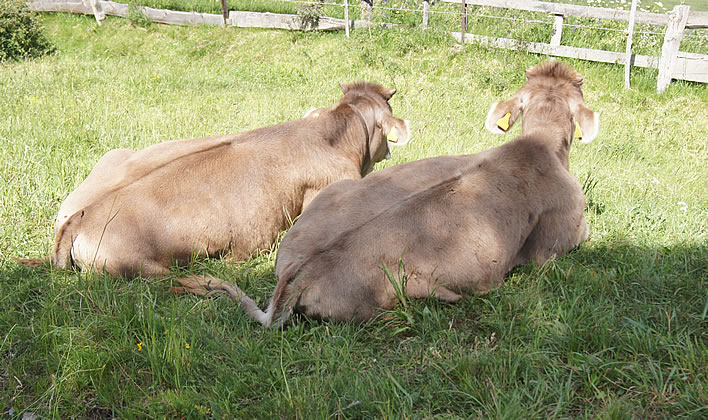
The human, on the other hand, braces himself against the great and ever greater weight of the past: this presses him down or bends him sideways, it weighs down his progress like an invisible and dark burden, which for the sake of appearances he can suppress, and which he in his dealings with his fellows is only too happy to suppress: in order to arouse their envy.
Der Mensch hingegen stemmt sich gegen die grosse und immer grössere Last des Vergangenen: diese drückt ihn nieder oder beugt ihn seitwärts, diese beschwert seinen Gang als eine unsichtbare und dunkle Bürde, welche er zum Scheine einmal verläugnen kann, und welche er im Umgange mit seines Gleichen gar zu gern verläugnet: um ihren Neid zu wecken.
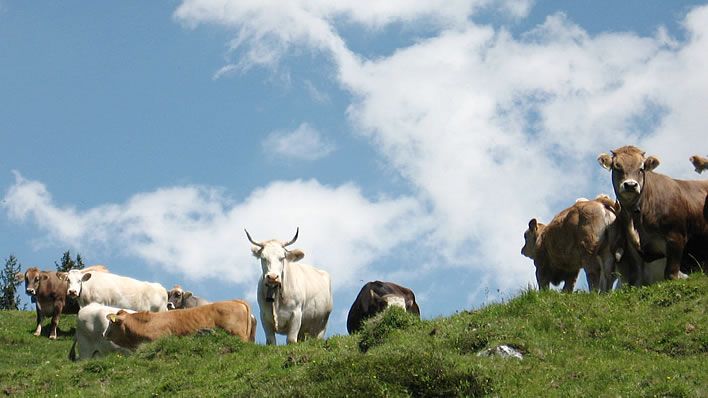
Therefore he is moved, as though he were thinking of a lost paradise, to see the grazing herd or, closer to home, to see the child, that does not yet have any past to suppress and who plays in blissful blindness between the fences of the past and the future.
Deshalb ergreift es ihn, als ob er eines verlorenen Paradieses gedächte, die weidende Heerde oder, in vertrauterer Nähe, das Kind zu sehen, das noch nichts Vergangenes zu verläugnen hat und zwischen den Zäunen der Vergangenheit und der Zukunft in überseliger Blindheit spielt.
Interim remarks: on reading Nietzsche
This is Friedrich Nietzsche writing, almost always an invitation to smile and to laugh and to think. He writes in the tradition of the French aphorists, creating puncture wounds with his rapier, not the blunt-force trauma of the German Idealists, who were not known for their joviality and who liked to crunch bone. Whereas Kant and Hegel et al. shut all discussion down, Nietzsche gets it going.
For example, the attempt of the Classical scholar to strike up a conversation with a cow is not something you will find in traditional philosophical systems. By the time the great philologist has finished his question, the cow has forgotten not only the question but the answer which it would have given if only it could have remembered the question… and remembered the answer it had ready. At the conclusion of this interaction, the cow remains innocently happy, the human, puzzled.
Nietzsche had a passion for language. He cannot resist playing and punning with it. The reader must read slowly with total attention, the translator sweats and groans.
But is it all a long, learned joke? Just a witty essay? Where is the seriousness? Of course cows have memories: the calf that once caught a glimpse of my stick as I was passing and drew back in abject terror – that calf had not forgotten some painful experience, nor have I forgotten that terrified reaction either.
And where would our human world be if all the great thinkers which that world has produced down the millennia were not capable of remembering their last utterances, let alone what they had had for lunch? It is ironic that Nietzsche's last years were spent in a geistige Umnachtung, a 'mental darkness' that was almost bovine.
But that is not Nietzsche's point here. He is not saying humans should become bovine, of course not. He is writing about happiness and the need to forget.
Back to Professor Nietzsche.
The sleep deprived woke who cannot forget
Consider an extreme case, a person who did not have the ability to forget, who was condemned to see in everything a 'becoming' [1]: such a person would no longer believe in his own existence, would no longer believe in himself, would see everything fly apart in moving points and would lose himself in the stream of becoming: in the end he would, as the good student of Heraclitus [2], hardly dare to raise his finger.
Denkt euch das äusserste Beispiel, einen Menschen, der die Kraft zu vergessen gar nicht besässe, der verurtheilt wäre, überall ein Werden zu sehen: ein Solcher glaubt nicht mehr an sein eigenes Sein, glaubt nicht mehr an sich, sieht alles in bewegte Punkte auseinander fliessen und verliert sich in diesem Strome des Werdens: er wird wie der rechte Schüler Heraklits zuletzt kaum mehr wagen den Finger zu heben.
- There is no satisfactory one word translation of the noun das Werden into English. What Nietzsche means is that the observer who cannot forget is permanently confronted not just by the current state of something, but by all its previous/past states. Such an observer therefore never simply sees the current state, but sees all the diachronic states of its entire past, like moving points flying apart – its 'history' or its 'becoming' in other words.
- Elsewhere in his writings, Nietzsche paid some attention to Heraclitus, whose most famous statements take a flowing stream as a metaphor for the nature of time. According to this view, human experience is a permanent present; past and future lie inaccessibly outside experience. This concept seems quite reasonable to us forgetters, but to a never-forgetter sitting at Heraclitus' feet it would sound very strange: for him, the stream that has flowed on from him which others regard as the past is still vibrantly present in his memory; for him, the stream does not simply flow past a point that is the present, it is an entire 'stream of becoming'. Would the 'good student' dare to 'lift his finger' in order to pose a question to the great philosopher? That question could be formulated: is the past just memory?
Forgetting is a part of all human action: in the same way that not just light but also darkness is part of the life of all organisms. A person who only wanted to experience things in a purely historical way would resemble someone forcibly deprived of sleep, or a ruminant [1] beast forced to live only from its repeatedly regurgitated cud.
Zu allem Handeln gehört Vergessen: wie zum Leben alles Organischen nicht nur Licht, sondern auch Dunkel gehört. Ein Mensch, der durch und durch nur historisch empfinden wollte, wäre dem ähnlich, der sich des Schlafens zu enthalten gezwungen würde, oder dem Thiere, das nur vom Wiederkäuen und immer wiederholten Wiederkäuen leben sollte.
- Whereas English prefers the Latin word 'ruminant', German has a down-to-earth word for animals such as cows that regurgitate food that has been fermented in a special chamber of the stomach: Wiederkäuer, literally 'again-chewer'. Nietzsche can exploit wieder for his rhetorical purposes: the food never passes through the digestive tract to be expelled and forgotten but is regurgitated permanently. For this concept the translator has only 'ruminate', available, which, left on its own, would baffle English readers.
It is possible to live almost without memory, indeed to live happily, as the beast makes clear; it is however utterly impossible to live without forgetting. Or, to state my point even more simply: there is a degree of sleep deprivation, of regurgitation, of historicity, by which the living are damaged and ultimately perish, whether a person or a people or a culture.
Also: es ist möglich, fast ohne Erinnerung zu leben, ja glücklich zu leben, wie das Thier zeigt; es ist aber ganz und gar unmöglich, ohne Vergessen überhaupt zu leben. Oder, um mich noch einfacher über mein Thema zu erklären: es giebt einen Grad von Schlaflosigkeit, von Wiederkäuen, von historischem Sinne, bei dem das Lebendige zu Schaden kommt, und zuletzt zu Grunde geht, sei es nun ein Mensch oder ein Volk oder eine Cultur.
In order to determine this degree, and through that to determine the limit at which the past has to be forgotten if it is not to become the grave digger of the present, one would have to know exactly how great is the formative power [1] of a person, of a people, of a culture; I mean the power to grow beyond its singular self, to reshape and assimilate the past and the foreign [2], to heal wounds, replace what has been lost, to remake broken forms from itself [3].
Um diesen Grad und durch ihn dann die Grenze zu bestimmen, an der das Vergangene vergessen werden muss, wenn es nicht zum Todtengräber des Gegenwärtigen werden soll, müsste man genau wissen, wie gross die plastische Kraft eines Menschen, eines Volkes, einer Cultur ist, ich meine jene Kraft, aus sich heraus eigenartig zu wachsen, Vergangenes und Fremdes umzubilden und einzuverleiben, Wunden auszuheilen, Verlorenes zu ersetzen, zerbrochene Formen aus sich nachzuformen.
- On its own, each of the obvious English translations for Nietzsche's plastische Kraft will leave the reader confused. Nietzsche was writing before the immense class of useful materials we now call 'plastic' overwhelmed the word and buried its long and clear etymology, which arises from the idea of giving shape, moulding or forming something. Nietzsche, himself aware of the trickiness of the word, elaborates on his meaning in the rest of the passage.
Around ten years after Nietzsche wrote this text, the Munich pharmacist Franz Kolb invented 'Plastilin', conceived as a clay substitute for his sculptor friends; the English-speaking world followed shortly thereafter with its own recipe for 'plasticine', which has become the only widespread use of the original meaning of 'plastic' in the English language as something which can be moulded, formed and shaped. - There is no simple English equivalent for the noun Fremdes, 'unknown', 'strange', from a 'different source'. 'Alien' is too emotionally loaded, 'external' too vague. 'The foreign' will have to do.
- Whereas memory is simply passive recall, whether painful or pleasant, 'formative power' 'deals with' the past in the sense that it integrates the past into the present. It is thus a healing process, constructive and thus 'formative'. Post-Damascus Paul may remember the anti-Christian actions of the pre-Damascus Saul, but his integrative, formative memory will see that past as the necessary preliminary or preparation for his present and future as the Christian Paul. Paul's zeal is just Saul's zeal with changed polarity.
There are people who possess so little of this power that, as a result of a single experience, a single hurt, often just a single mild injustice, they bleed as it were incurably to death from only a tiny cut; on the other hand there are those who are so little affected by the most savage and gruesome events in their lives and even malicious acts of their own doing that immediately or shortly afterwords they attain a tolerable well-being and some sort of clear conscience.
Es giebt Menschen die diese Kraft so wenig besitzen, dass sie an einem einzigen Erlebniss, an einem einzigen Schmerz, oft zumal an einem einzigen zarten Unrecht, wie an einem ganz kleinen blutigen Risse unheilbar verbluten; es giebt auf der anderen Seite solche, denen die wildesten und schauerlichsten Lebensunfälle und selbst Thaten der eigenen Bosheit so wenig anhaben, dass sie es mitten darin oder kurz darauf zu einem leidlichen Wohlbefinden und zu einer Art ruhigen Gewissens bringen.
…
…
And this is a general law; each living thing can only become healthy, strong and fruitful within an horizon; if it is incapable of drawing an horizon around itself and too selfish to enclose its gaze within a foreign horizon, then it will waste away feebly or precipitately to its early extinction.
Und dies ist ein allgemeines Gesetz: jedes Lebendige kann nur innerhalb eines Horizontes gesund, stark und fruchtbar werden; ist es unvermögend einen Horizont um sich zu ziehen und zu selbstisch wiederum, innerhalb eines fremden den eigenen Blick einzuschliessen, so siecht es matt oder überhastig zu zeitigem Untergange dahin.
Cheerfulness, a clear conscience, the happy deed, confidence in what is to come – all that, whether for the individual or for a people, depends on whether there is a line that separates the visible, the bright [1] from that which is obscure and cannot be illuminated; depends on whether one knows the right moment to forget just as the right moment to remember; depends on whether a person with a strong instinct senses when it is necessary to experience historically and when ahistorically. This is the proposition which the reader is invited to consider: the ahistorical and the historical are equally necessary for the health of an individual, a people and a culture.
Die Heiterkeit, das gute Gewissen, die frohe That, das Vertrauen auf das Kommende — alles das hängt, bei dem Einzelnen wie bei dem Volke, davon ab, dass es eine Linie giebt, die das Uebersehbare, Helle von dem Unaufhellbaren und Dunkeln scheidet, davon dass man eben so gut zur rechten Zeit zu vergessen weiss, als man sich zur rechten Zeit erinnert, davon dass man mit kräftigem Instincte herausfühlt, wann es nöthig ist, historisch, wann unhistorisch zu empfinden. Dies gerade ist der Satz, zu dessen Betrachtung der Leser eingeladen ist: das Unhistorische und das Historische ist gleichermaassen für die Gesundheit eines Einzelnen, eines Volkes und einer Cultur nöthig.
- A simple emendation is needed to repair the problematic syntax of this sentence: …das Übersehbare, die Helle von dem Unaufhellbaren und Dunkeln
…
…
Here is an observation that everyone will be able to confirm: the historical knowledge and sensibility of a human can be very limited, his horizon as closely bounded as that of an inhabitant of an alpine valley; every judgement may contain an injustice and he may make the mistake of assuming that he is the first to have any particular experience – yet despite all errors and misunderstandings he stands there in indestructable health and robust vigour, a cheering sight for everyone.
Hier bringt nun Jeder zunächst eine Beobachtung mit: das historische Wissen und Empfinden eines Menschen kann sehr beschränkt, sein Horizont eingeengt wie der eines Alpenthal-Bewohners sein, in jedes Urtheil mag er eine Ungerechtigkeit, in jede Erfahrung den Irrthum legen, mit ihr der Erste zu sein — und trotz aller Ungerechtigkeit und allem Irrthum steht er doch in unüberwindlicher Gesundheit und Rüstigkeit da und erfreut jedes Auge;
Next to him the much fairer and more educated human sickens and deflates, because the lines of his horizon are continually shifting and because he cannot extricate himself from his much more finely spun web of judgements and truths to find robust wants and desires.
während dicht neben ihm der bei weitem Gerechtere und Belehrtere kränkelt und zusammenfällt, weil die Linien seines Horizontes immer von Neuem unruhig sich verschieben, weil er sich aus dem viel zarteren Netze seiner Gerechtigkeiten und Wahrheiten nicht wieder zum derben Wollen und Begehren herauswinden kann.
We saw the beast, which in contrast is utterly ahistorical and lives within an almost point-like horizon and yet which lives in a certain happinesss, at least without torpidity or dissimulation; observing this, we would have to judge the ability to live to a certain extent ahistorically as the more important, the more primordial ability, in as much as it is the foundation upon which something right, healthy and great, something truly human can grow.
Wir sahen dagegen das Thier, das ganz unhistorisch ist und beinahe innerhalb eines punktartigen Horizontes wohnt und doch in einem gewissen Glücke, wenigstens ohne Ueberdruss und Verstellung lebt; wir werden also die Fähigkeit, in einem bestimmten Grade unhistorisch empfinden zu können, für die wichtigere und ursprünglichere halten müssen, insofern in ihr das Fundament liegt, auf dem überhaupt erst etwas Rechtes, Gesundes und Grosses, etwas wahrhaft Menschliches wachsen kann.
Translation ©2022 Figures of Speech; when quoting please link to this webpage.
Source: Friedrich Nietzsche: Unzeitgemässe Betrachtungen. Zweites Stück: Vom Nutzen und Nachtheil der Historie für das Leben.. Leipzig 1874, Verlag von E. W. Fritzsch.
Online: Digitale Kritische Gesamtausgabe von Nietzsches Werken und Briefen (eKGWB).
Conclusion
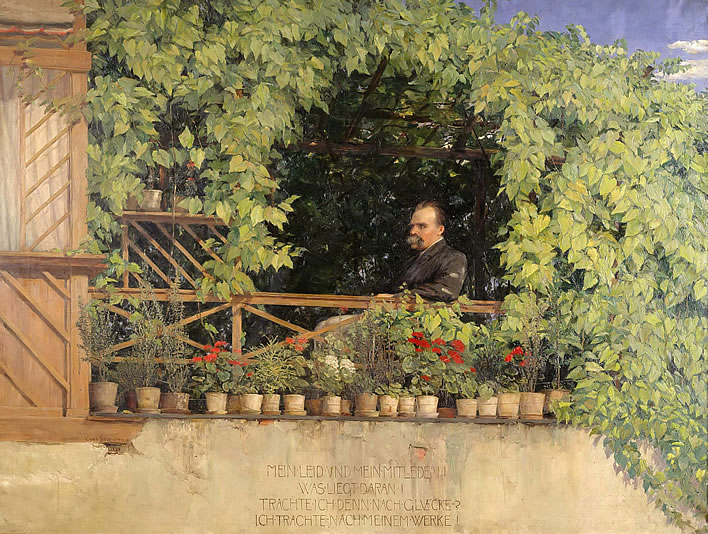
Curt Stoeving (1863-1939), Bildnis Friedrich Nietzsche (1894)
The setting of this remarkable portrait alludes to Nietzsche's Also sprach Zarathustra, one of the final statements of which is inscribed on the wall. Nietzsche's position under the arch of the pergola is a metaphor for Zarathustra in his cave, a visual echo of the last words of the work: Also sprach Zarathustra und verließ seine Höhle, glühend und stark, wie eine Morgensonne, die aus dunklen Bergen kommt. 'Thus spoke Zarathustra and left his cave, glowing and strong, as a morning sun which comes out of the dark mountains.' Nietzsche's terminal decline had already begun by the time of this portrait and no exit would be possible from that dark cave.
Image: Alte Nationalgalerie, Staatliche Museen zu Berlin.
'History, Stephen said, is a nightmare from which I am trying to awake.' [James Joyce, Ulysses, 1922/1937, p31]. The context of this remark is remarkably prescient of the nightmare history of the first half of the twentieth century, but that is just an aside for the moment. Ulysses begins with an awakening, passes through an eventful day and ends in the turmoil of Molly Bloom's stream of consciousness monologue in which the sheets from the scroll of time flutter back as ghosts 'to disturb the peace of a later moment' before sleep finally overcomes her.
Nietzsche would invert Stephen's statement to read: 'history is a waking nightmare from which I must sleep and forget.' But Stephen and the Blooms will wake up every morning, the monstrous past eternally present for them.
The nations – the cultures – of at least the anglophone West are currently writhing at the manifestation of so many ghosts that have returned to disturb the peace of this later moment, a moment in which we are living longer and wealthier lives than at any time in human history.
Stephen again: 'Speaking to me. They wash and tub and scrub. Agenbite of inwit. Conscience. Yet here's a spot.' [Ibid. p14] 'Yet here's a spot' is Lady Macbeth walking and talking in her sleep, unable to forget her past, even in sleep, unable to scrub away the stain that is only there in her memory. [Macbeth 5:1:36] She is clearly not one of 'those who are so little affected by the most savage and gruesome events in their lives and even malicious acts of their own doing that immediately or shortly afterwords they attain a tolerable well-being and some sort of clear conscience' as Nietzsche put it.
The fine sensibilities of the woke, their 'finely spun web of judgements and truths' from which they cannot 'extricate' themselves haunts their waking hours. 'Individuals, nations and cultures' must now apologise, make amends, pay reparations, remake their lives in permanent guilt. In the personal history, one peccadillo, however trivial, in an otherwise blameless life can lead to social oblivion. It is a spot that can never be allowed to be rubbed out.
So many things that we had forgotten, those sheets from the scroll of time, are now resting in our laps, requiring to be remembered, never forgotten, atoned for without end. The artefacts left over from the past – every aspect of the culture – may be destroyed or hidden, condemned to the outer darkness, no scrubbing will ever really remove them because we can never forget, can never allow ourselves to forget. We are in thrall to the sleep-deprived. We are seeing spots of blood where no spots are.
Nietzsche gave it emphasis for good reason: 'the ahistorical and the historical are equally necessary for the health of an individual, a people and a culture.' Know when to remember, know when to forget.
0 Comments UTC Loaded:
Input rules for comments: No HTML, no images. Comments can be nested to a depth of eight. Surround a long quotation with curly braces: {blockquote}. Well-formed URLs will be rendered as links automatically. Do not click on links unless you are confident that they are safe. You have been warned!